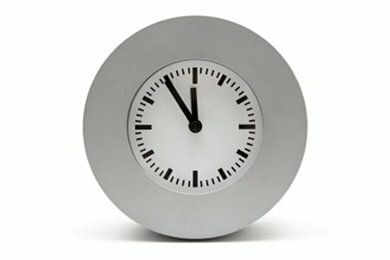How Effective is Intermittent Fasting for Weight Loss?
March 1, 2020 13 Comments
How effective is intermittent fasting for weight loss? First, we need to define “intermittent fasting”.

Is it when I make it from breakfast to lunch without a snack? or when I sleep? The concept is different than simply “fasting” which usually means you go 24 hours without eating.
When I wrote what is the best diet to lose weight?, Shonda replied with her advice.
From Shonda:
It's not a diet, but lifestyle: intermittent fasting. Fast 16 , eat during 8. It's called 16:8. In the fasting drink lots of water and exercise. In eating eat like you mentioned (the Mediterranean diet) above. You are giving your body a break from digestion and giving a chance to burn fat.

I had not been introduced to 16:8 intermittent fasting and I thought it sounding like a good idea. For example, you stop eating at 7 PM and do not start again until 11 AM the next day. You eat from 11AM to 7 PM (and then stop again).
Before I go any farther, I want to emphasize that for those of you who have trouble with eating (such as an eating disorder), I don’t thing this is for you. Snack Girl has readers who are trying to develop a healthy relationship with food and some of them aren’t eating enough.
Intermittent fasting is another way to limit calories but I don’t think that the message “don’t eat for 16 hours” works for those of us who (for example) fear eating.
For those of us who have a healthy relationship to food (perhaps love it too much) and want to try something new - intermittent fasting has a basis in science. Back in the olden days, we didn’t have fridges or Wendy’s so our bodies spent a lot of time not eating.
It may be that our metabolisms are built for this long fast interval and we end up healthier by not eating for 16 hours.
From Harvard Intermittent Fasting Update Article:
Between meals, as long as we don’t snack, our insulin levels will go down and our fat cells can then release their stored sugar, to be used as energy. We lose weight if we let our insulin levels go down. The entire idea of intermittent fasting is to allow the insulin levels to go down far enough and for long enough that we burn off our fat.
In one study after five weeks of 16:8, obese participants ended up with significantly lower blood pressure and improved insulin sensitivity (but they did not lose weight).
What I like about this 16:8 intermittent fasting plan is that is far simpler than what I outline in my Weight Watchers 2020 review. You eat healthy during the eight hours, take a break from eating, and get your fat burning metabolism going with not eating.
Obviously, if you stuff your face with fast food during the eight hours, you will defeat the purpose of the fast. You still have to pay attention to what you eat.
I am worried that you would end up like this guy if you didn’t eat for 16 hours.

HANGRY!!!
Yes, I am sure I would be standing at my fridge at 10:50 AM waiting for 11 AM if I tried intermittent fasting. Also, I am sure my husband would start to demand that I eat (as I would be a wee bit grumpy :)
Whenever studies are done on intermittent fasting, it takes four weeks to see an effect so you must be devoted to it. This is not a quick fix!
I do have a rule about never eating after 7 pm that I stick to pretty religiously. Snacking or eating at nighttime is related to obesity so keep that in mind if you want to shift (but not stop eating for 16 hours).
Have you tried intermittent fasting? How effective is intermittent fasting for weight loss?

Other posts you might like:

New WW Changes for 2020
WW (formerly Weight Watchers) has made some big changes for 2020. WW always changes their program a little bit so 2020 is no exception......

What is the Best Diet to Lose Weight?
What is the best diet to lose weight? After 10 years of writing, thinking, and attempting diets I wish I could give a definitive answer......

13 Comments:
Karen M Johnson
maryvw
Linda Brown
Nicole Blake
Nancy
Patticake
Nancy
Susan
Jean Lee
Linda Brown
Susan
Bridget
Laura Sagami